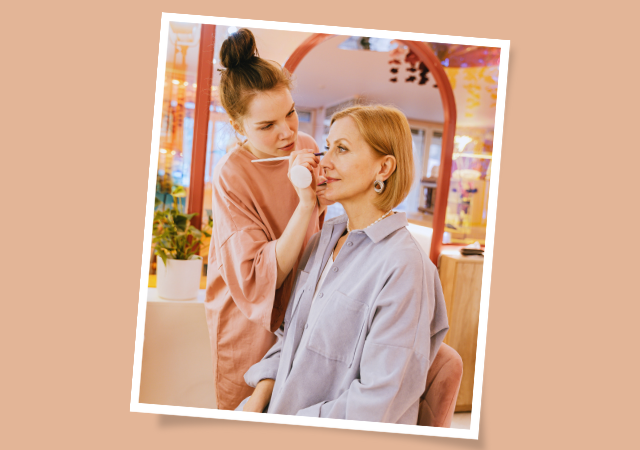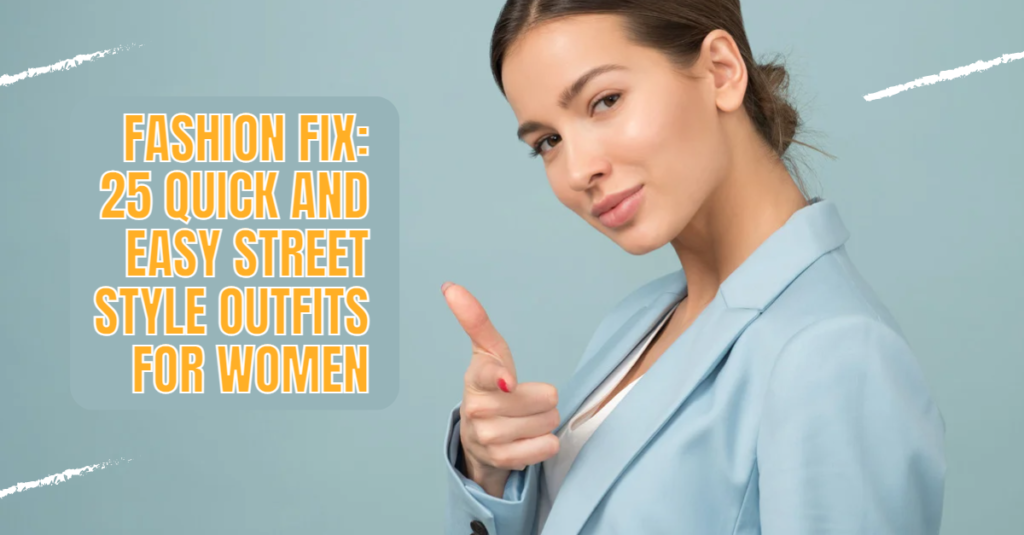What is a Makeup Artist: What Does a Makeup Artist Do?
Introduction
Makeup artistry is a captivating blend of creativity and technical skill, where an artist transforms a canvas, in this case, a human face, into a masterpiece. The world of makeup artists is a realm where beauty meets artistry, and where each stroke of the brush or dab of concealer can tell a unique story. Whether it’s enhancing natural beauty, creating stunning looks for the red carpet, or crafting otherworldly creatures for the big screen, makeup artists are indispensable to a multitude of industries.
In this article, we will delve into the world of makeup artists, exploring their history, the various types of makeup artistry, the skills and training required, and the tools and products they use. We’ll also shine a light on the challenges and rewards of this profession and introduce you to some iconic makeup artists who have left an indelible mark on the industry. Join us on a journey to uncover the secrets and artistry behind the makeup artist’s craft.
History of Makeup Artistry
Before we dive into the contemporary realm of makeup artistry, it’s essential to understand its historical roots. Makeup has been a part of human culture for thousands of years, used for ritualistic, aesthetic, and protective purposes.
- The Origins of Makeup: The history of makeup can be traced back to ancient civilizations, such as the Egyptians, who used cosmetics for both aesthetic and symbolic purposes. They employed various substances like kohl, malachite, and ochre to decorate their faces. Similarly, the Greeks and Romans embraced makeup for aesthetic enhancement.
- Evolution of Makeup in Different Cultures: Across different cultures, makeup took on various meanings and forms. In Japan, the geisha’s white face and red lips became an iconic image of beauty. Indigenous tribes worldwide used face paint and body art for rituals and to convey their cultural identity.
- Pioneers in Modern Makeup Artistry: The modern makeup industry saw significant advancements in the 20th century. Makeup artists like Max Factor and Ben Nye developed new cosmetics and techniques, laying the foundation for the profession we know today.
Types of Makeup Artists

Makeup artistry is a multifaceted field, and makeup artists specialize in various niches, each with its own set of challenges and creative opportunities. Here are some of the primary categories of makeup artists:
- Beauty Makeup Artists: These professionals focus on enhancing a client’s natural beauty. They often work in the beauty industry, providing makeup services for events, weddings, or everyday looks.
- Special Effects Makeup Artists: In the realm of cinema and theater, special effects makeup artists create astonishing transformations. They use prosthetics, body paint, and other techniques to craft fantastical creatures, wounds, and other extraordinary looks.
- Theatrical and Film Makeup Artists: Working in collaboration with directors and costume designers, theatrical and film makeup artists are responsible for creating characters that seamlessly fit into the story. They must adapt their work for the camera’s specific requirements, taking into account lighting and the character’s role.
- Bridal Makeup Artists: Bridal makeup artists specialize in helping brides look their best on their special day. They must understand the nuances of bridal makeup, which needs to withstand the rigors of the day and look stunning in photos.
- Fashion and Editorial Makeup Artists: These artists collaborate with photographers and models in the fashion industry. They create striking, avant-garde, and high-fashion looks that fit the theme of the photoshoot.
- Avant-Garde and Creative Makeup Artists: This category is where artistry truly shines. Avant-garde and creative makeup artists push boundaries, using makeup to convey emotions, tell stories, and challenge conventional beauty standards.
Skills and Training
Becoming a makeup artist requires a unique skill set and often involves formal training or education. Some of the essential skills and qualifications include:
- Essential Skills for a Makeup Artist: Patience, attention to detail, and a keen eye for color and symmetry are vital. Effective communication skills and the ability to understand a client’s desires are equally important.
- Formal Education and Certification: While formal education is not always mandatory, many makeup artists choose to attend makeup schools or training programs. These courses provide knowledge about various makeup techniques, product knowledge, and hygiene practices. Some artists opt for certification programs to validate their skills.
- Continuous Learning and Keeping Up with Trends: The makeup industry is ever-evolving. To stay competitive and relevant, makeup artists need to stay updated on the latest trends, products, and techniques. Attending workshops, following industry leaders, and experimenting with new styles are essential for professional growth.
Makeup Artistry Tools and Products
Makeup artists rely on an arsenal of tools and products to create their magic. Understanding these essentials is crucial for anyone looking to pursue a career in makeup artistry:
- Essential Tools for Makeup Artists: These include brushes, sponges, airbrush systems, and various applicators. Each tool serves a unique purpose, from blending eyeshadows to achieving a flawless foundation application.
- Types of Makeup Products: The makeup artist’s kit is filled with a vast array of products, including foundation, concealer, eyeshadows, lipsticks, and more. Each product has its unique texture, finish, and coverage level, allowing for infinite creative possibilities.
- Makeup Brands and Their Importance: Makeup artists often develop brand preferences based on product quality, pigmentation, and longevity. They select brands that align with their clients’ needs and the look they want to achieve.
The Makeup Process
The art of makeup application involves several steps, starting from consultation and ending with a flawless finish:
- Consultation and Skin Assessment: A makeup artist begins by discussing the client’s preferences and skin type. They assess the client’s skin condition and discuss any specific concerns or requests.
- Customizing Makeup Looks: The makeup artist tailors the makeup look to the client’s needs and desires. This may include choosing colors, textures, and styles that enhance the client’s features.
- Application Techniques: Makeup artists use a variety of techniques, such as blending, contouring, highlighting, and shading, to achieve the desired look. They work meticulously to ensure even coverage and a flawless finish.
- Correcting and Enhancing Facial Features: Makeup can be used to correct imperfections, enhance facial features, and create a harmonious look. This includes concealing blemishes, defining eyebrows, and contouring the face.
- Makeup Hygiene and Safety: Maintaining strict hygiene practices, such as regularly cleaning brushes and tools, is essential for preventing skin issues or infections. Makeup artists also need to be aware of allergies and skin sensitivities.
Working Environments
Makeup artists can be found in various working environments, each with its own demands and opportunities:
- Freelance Makeup Artists: Many makeup artists choose to work independently, offering their services on a freelance basis. This provides flexibility and the ability to work with a diverse range of clients.
- Makeup Artists in Salons and Spas: Salons and spas employ makeup artists to offer beauty services to their clientele, including makeup applications for special events or daily grooming.
- The Entertainment Industry: Makeup artists in the entertainment industry work on film and television sets, creating characters that come to life on screen. They collaborate closely with directors, costume designers, and actors.
- Makeup Artists in the Fashion Industry: The fast-paced world of fashion demands creative makeup artists who can translate the vision of designers and photographers into striking looks for models.
Challenges and Rewards of Being a Makeup Artist
The profession of a makeup artist comes with its own set of challenges and rewards:
- Long Hours and Physical Demands: Makeup artists often work long hours, especially in the entertainment and fashion industries. The work can be physically demanding, as artists need to maintain precision and focus for extended periods.
- Competition in the Industry: The makeup industry is highly competitive. Standing out requires not only exceptional skills but also a strong portfolio and a reputation for professionalism.
- Building a Portfolio and Clientele: Makeup artists must build a diverse portfolio to showcase their work and attract clients. Gaining the trust of clients and maintaining a loyal clientele is a gradual process.
- Job Satisfaction and Creative Fulfillment: Makeup artists derive immense satisfaction from their work. They have the privilege of making people look and feel their best, boosting their clients’ confidence and self-esteem.
- Earning Potential: Earnings in this field can vary widely, depending on factors such as location, specialization, and experience. Established makeup artists in high-demand areas can command higher rates.
Famous Makeup Artists
The makeup industry has seen the rise of influential artists who have left an indelible mark on the profession. Some notable figures in makeup artistry include:
- Influential Makeup Artists in History: Max Factor, the “Father of Makeup,” revolutionized cosmetics in the early 20th century. Kevyn Aucoin, known for his transformative makeup artistry, is another icon.
- Contemporary Makeup Artists Who Have Made Their Mark: Artists like Pat McGrath, who has worked with renowned fashion brands, and Rick Baker, a special effects wizard, have set new standards in their respective fields.
Conclusion
Makeup artistry is more than just applying makeup; it’s an art form that allows individuals to express their creativity, enhance natural beauty, and craft stunning looks for various industries. This article has explored the history of makeup artistry, the diverse roles of makeup artists, the skills and training required, the tools and products they use, the makeup application process, working environments, and the challenges and rewards of this dynamic profession. As we conclude, it’s clear that makeup artists are not only skilled professionals but also storytellers who transform faces into living canvases, leaving a lasting impact on the world of beauty and entertainment.

My name is Rohit Vagh and I’m a content writer specializing in fashion and lifestyle. I have three years of experience in this field and have written various articles. My writing style is creative and engaging, and I strive to create content that resonates with my readers. I have a deep passion for fashion and am constantly researching the latest trends and styles to make sure my readers are up to date. I’m excited to continue my career in blogging, and I’m always looking for new opportunities in the fashion and lifestyle space.





